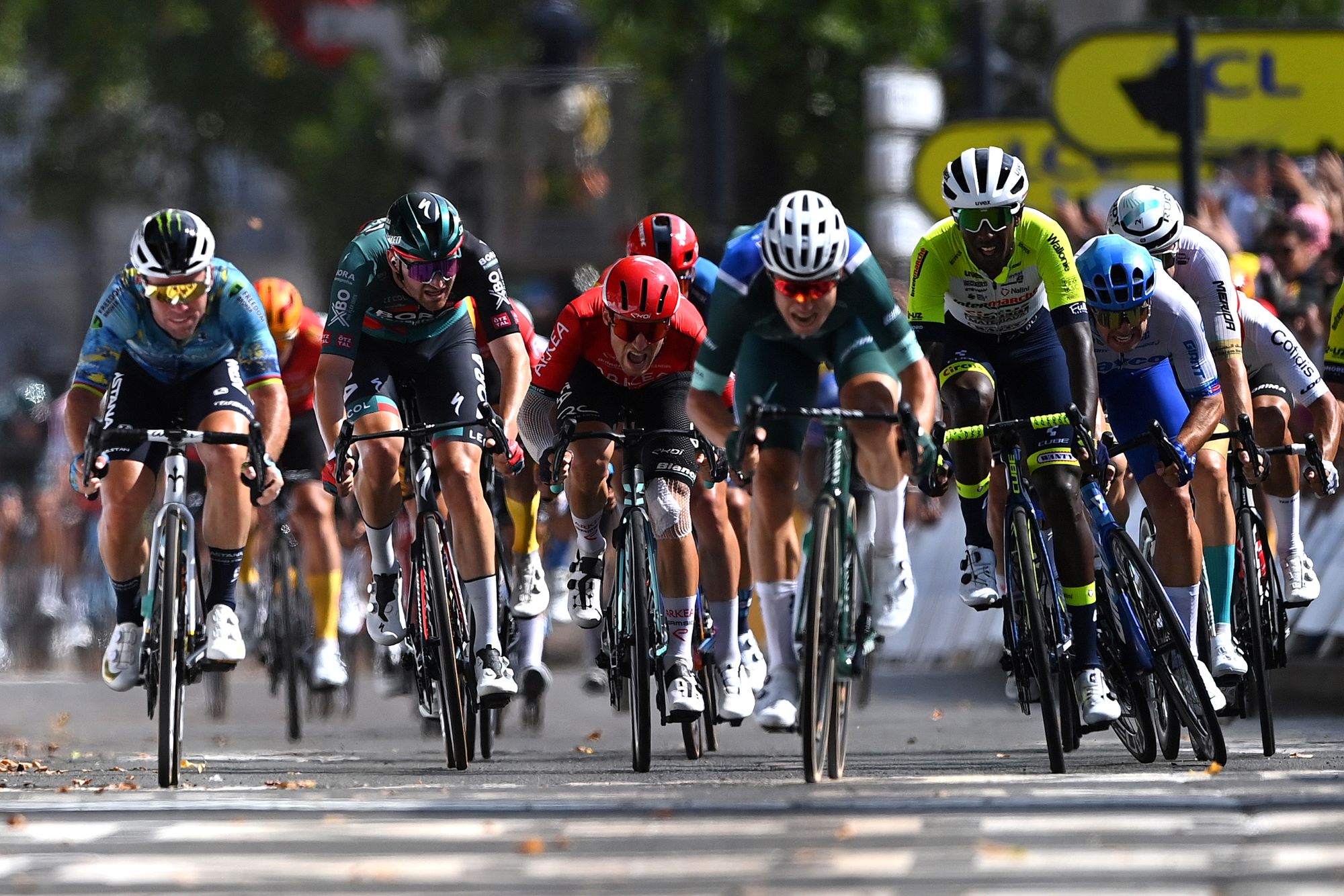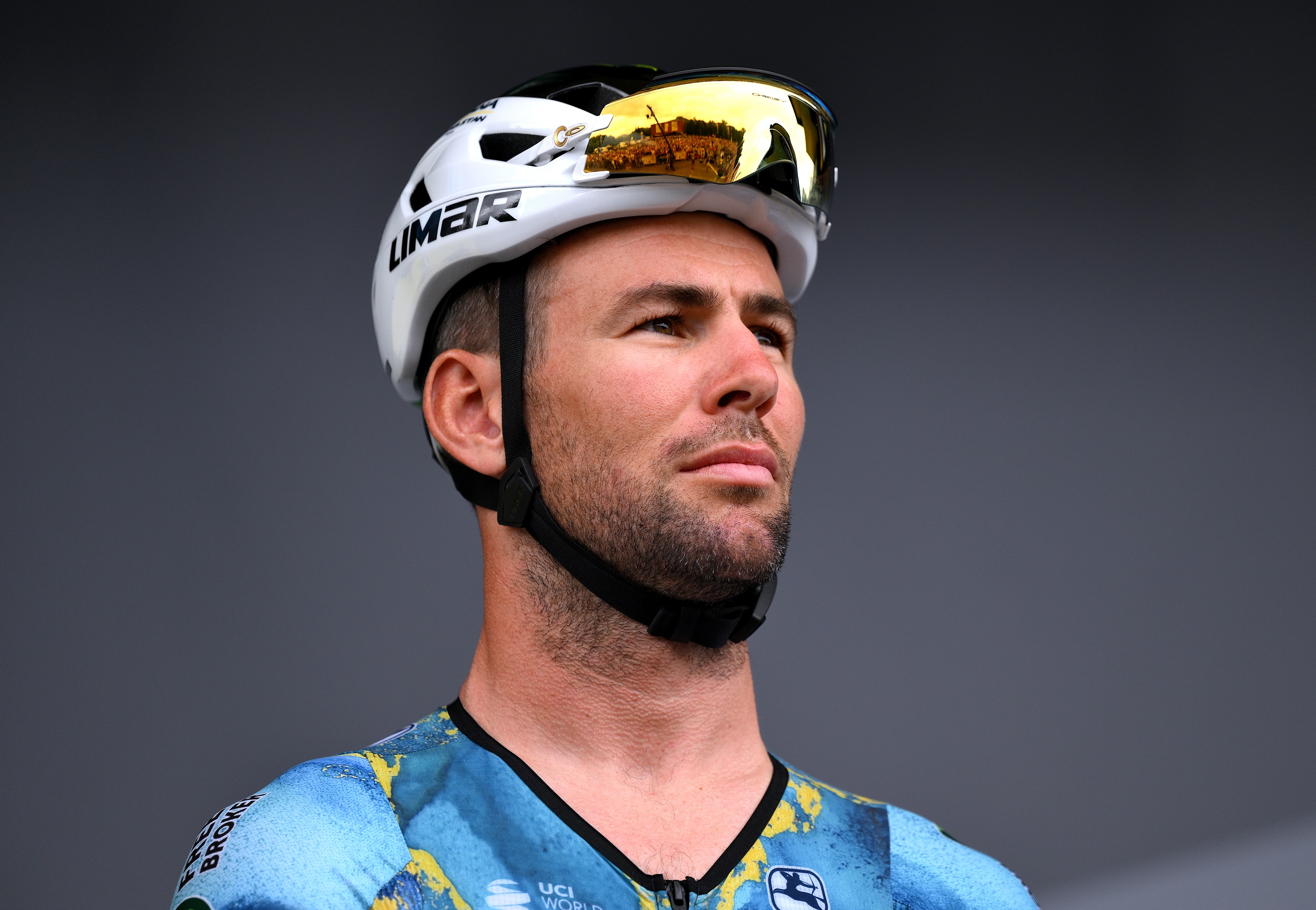
A rear derailleur cage moves mere millimeters with each click of a button. It’s a subtle change but enough to move a bike’s chain from one gear to the next. Or not, as Mark Cavendish found out in the closing meters of stage seven of the Tour de France this year.
On the finishing straight his derailleur was fractions of a millimeter out skipping the chain between gears. Cavendish, streaking ahead of the best sprinters in the world, was less than a millimeter from victory. He had been robbed of momentum and glory in the Bordeaux streets by a rear shifter behaving as if it had been imbibing the local produce. His best chance yet at a historic 35th Tour de France stage win literally derailed.
If Cavendish had been searching for the answer to the question of whether he could still win on cycling’s greatest stage then that Bordeaux afternoon gave him an emphatic yes.
At the end of the Netflix documentary about the last few years of his career Mark Cavendish: Never Enough, which debuts tomorrow, he underlines how important that question is, the final line of the film is him saying, “I will continue trying to win for as long as I believe I can win.”
The film as a whole is the most open exploration yet of the illness and depression filled years of his career between 2017 and 2021 and his eventual return to winning ways at the Tour that year.
We find out just how concerned those around the Manxman were on account of his mental health, some saying he was very close to needing hospital treatment and others clearly concerned he might hurt himself.
It doesn’t labour all the details as it delicately paints a picture of a man who as young boy used cycling as a means of escaping the difficulties of negotiating his parents divorce, rode that escape all the way to Tour de France glory, only to discover that when cycling became the problem he had no means of escape, there are still questions left for the viewer. Like how exactly did his recovery come about?
However, spending more time with his family, especially his wife Peta, for whom this whole period was clearly far from a picnic too, was plainly a key factor.
That’s not a given. Legion are the annals of professional sports people who, after 10 years or more on the road, return home to discover being around their partners all the time isn’t what they hoped it would be.

The Cavendishes were forced into it by the Covid lockdowns of 2020-21. “This is what we were waiting for. This. Now,” says Peta on the film.
“Just to be at home was so different to what I'd ever had,” says a reflective Cavendish. “And I loved it, I really did.”
Cavendish went on to chalk up the redemption story we all lived alongside him in 2021, winning four stages of the Tour with Deceuninck-Quick-Step.
Since then cycling has not been an easy ride for Cavendish. He wasn’t selected in 2022 and had one lone mission in 2023, a Tour stage win, that he came within millimetres of in Bordeaux. Then he crashed and broke his collarbone in the most innocuous of incidents.
He hasn’t wanted to talk publicly about the future since. A group of interviews organised to promote the Netflix film came with a moratorium from the film's PR people on questions on whether he’d postpone his retirement at the end of 2023 for another year (his current team Astana, have said they’ll happily take him back to the Tour).
But the man that is portrayed in the film is one who’s found a balance he didn’t previously have. A deeper appreciation of parts of their life outside of professional bike racing. One that doesn’t need to try and use cycling to solve their problems any more. That seems like a healthier place.
For the fans, for the sport, he should come back. Demonstrate how a mechanically sound bike and what would then be 39 year-old legs, can recapture the glory of old. He showed at the Tour it was possible and by his own words he should continue trying if, as he must do, he believes he can win.
At the same time you wouldn’t begrudge him taking a bit of time to enjoy the other parts of his life. The ones that helped get him through the Netflix years. Professional cycling is an often selfish pursuit, it takes a dedication that is total and removes you from your family for long periods of time. The belief must be there now but you can see more clearly than ever why the price of trying might not be worth it.







